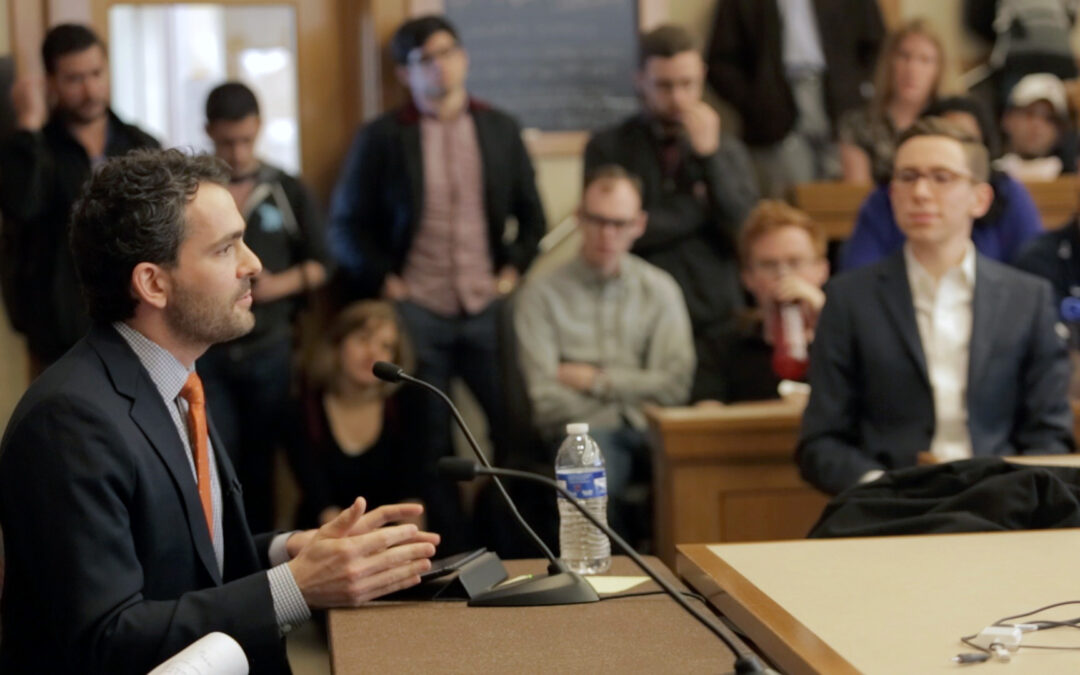Renowned family and religious liberty scholar Ryan Anderson is urging Christians to employ the power of storytelling in an increasingly contentious culture on social issues. He says that messaging eternal truths with courage and persuasiveness must be done through the power of stories to engage our society on important issues.
The Christian Post recently sat down with Anderson to discuss the way forward for Christians in the culture wars. He said that it is critical for Christians to engage in the public square, but as they stand for good and true principles they must do so with persuasiveness and courage.
“We need courage because many of the truths we have to bear witness to are unpopular truths. So it’s going to be truths about human dignity which are grounded in the fact that we are created in the image and likeness of God. And that we are created male and female and are created for each other in marriage.”
Ryan Anderson
President, Ethics And Public Policy Center
Anderson also cautioned against using contentious tactics and instead urged Christians to use solid arguments for truth coupled with stories. This, he says, can change hearts:
“We need to do a better job of telling the stories of all the non-sexual stuff. The Church gets pigeonholed in this where it’s most contra mundum. But we also need to think about telling the stories about ‘What are the Little Sisters of the Poor doing when they are not suing the Obama administration?'”
—-“They take care of the elderly and the fragile and the dying, and they embody what a real death with dignity looks like. They surround these people in a family setting with love, care, affection. And we don’t tell enough of those stories,” he added. (link)
“Christians to tell the stories about who they are, what they do, and what they are about — and not only when they are entangled in legal battles defending their constitutional rights because those stories are rarely heard.
In addition to this, he said that Christians need to tell stories from everything from the rarely heard homosexuals who oppose same-sex marriage or embrace the gospel without reservation to the every day stories about who we are, what we do, how we serve, and what role we play in every community.
How Does This Apply to The Church of Jesus Christ of Latter-day Saints?
Anderson outlines ideas that are every bit as applicable to our Church, especially with our sincere desire to gather scattered Israel. Gathering scattered Israel and the rising generation who have been scattered by the philosophies of the world takes remarkable talent and storytelling. Doctrines about the family are important and complex, and while it may be challenging to find the right tone and messaging, it is possible (and necessary) to do so without watering down the commandments. President Dallin H. Oaks masterfully teaches us how to do this:
Our stands and communications on controversial topics should not be contentious. We should be wise in explaining and pursuing our positions and in exercising our influence. In doing so, we ask that others not be offended by our sincere religious beliefs and the free exercise of our religion.
Here, President Oaks is encouraging us to still exercise our influence and talk about our very sincerely held religious beliefs, particularly with those central to “The Family: A Proclamation to the World.” Paragraph 9 tells us how to do this—and it is possible through the power of persuasive storytelling without diluting or sidestepping the message of the doctrine.
Of this, Elder Jeffrey R. Holland taught:
Christlike love is the greatest need we have on this planet in part because righteousness was always supposed to accompany it. So if love is to be our watchword, as it must be, then by the word of Him who is love personified, we must forsake transgression and any hint of advocacy for it in others. Jesus clearly understood what many in our modern culture seem to forget: that there is a crucial difference between the commandment to forgive sin (which He had an infinite capacity to do) and the warning against condoning it (which He never ever did even once). (Link)
These two quotes are the apostolic way of teaching what scholar Ryan Anderson is encouraging Christians all over the world to do. And, even though many of the truths we must bear witness to are unpopular. Yet, as we stand for that which is good and true, and do so with the power of persuasive and courageous storytelling, we can rise above the noise of the world and help others “hear Him.”
Check out the rest of TheFamilyProclamation.org by listening to our weekly podcast series Raising Family on cultural and social issues involving the family, as well as more of Relatable articles. A good place to start is our first podcast episode explaining why this site exists and what our team of experts hope to accomplish.
Tune in to hear why there’s “no other site like this in the world” (3:06), how this project began (4:36), and how this website can be used as a tool to help people create, strengthen, and heal families (11:20)
“Most of the time when we try to defend the family, we are labeled as ‘haters.’ I felt there had to be another way to go about it. I didn’t want to use the truths I knew about the family to fight, I wanted to use them to invite.”

